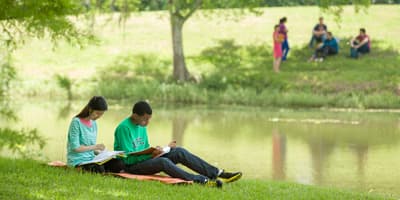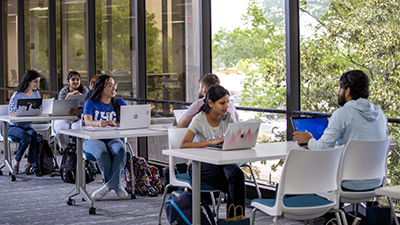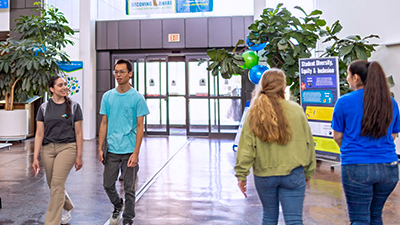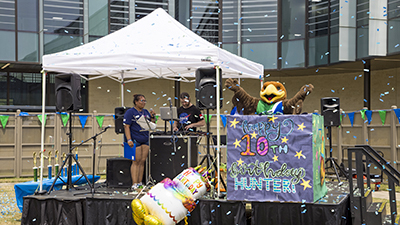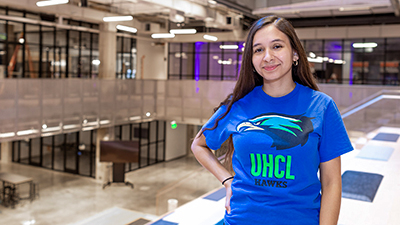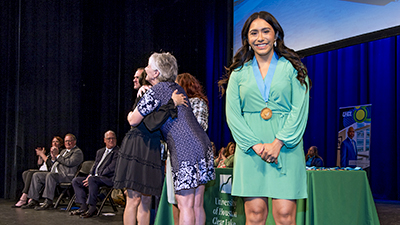Cultural arts director presents history of classical guitar
Explore the rich history of the classical guitar with University of Houston-Clear Lake’s Director of Cultural Arts, Eric Despard, who will perform and discuss pieces from the Renaissance, Baroque, Classical and Romantic periods on Aug. 7 at 4 p.m. The presentation is one of many ongoing virtual classes offered through UH-Clear Lake’s Friday Morning Continuing Education program.
Despard, who relocated from Vermont in early 2020 to become UHCL’s cultural arts director, is a lifelong guitarist, composer, artist and educator. He holds a Master of Music from Yale University.
“Classical guitar is very different from a steel string guitar,” Despard said. “It’s often referred to as a ‘Spanish’ guitar. It’s got a nice, warm tone and it’s got nylon strings that we play with our nails on our right hand.”
He said he would begin his brief review of the history of the classical guitar in the Renaissance, with a piece by Louis Milan. “It’s from a book called ‘El Maestro,’ which dates back to 1535. It is the first published book of music for guitar, and the interesting thing is, basically harmonic progressions have not changed. They’re the same as in today’s pop music,” he said. “Harmonically, pop music hasn’t changed in 500 years!”
During the Baroque period, he said, the guitar’s range expanded and the guitar itself was used by more serious composers. “By the Classical period, the guitar was considered an orchestra in miniature. I’ll be playing a piece by Fernando Sor, who takes a them from Mozart’s ‘The Magic Flute’ opera and creates variations in an orchestral setting,” he said.
During the Romantic period, Despard said composers began to explore movement toward nationalism and focused on some of the more idiomatic characteristics of guitar music. “I’ll play a piece called ‘Leyenda,’ which means ‘Legend,’ by the Spanish composer Isaac Albeniz, which draws upon the rich history of Spanish flamenco music,” Despard said.
Into the 20th century, Despard said he would discuss Leo Brouwer from Cuba, as well as play music from Antonio Lauro from Venezuela, Tango music by Astor Piazzola, and a work by Paraguayan guitarist Agustin Barrios.
“I hope people will gain a deeper understanding of classical guitar music and the repertoire,” Despard said.
Because this class was rescheduled from its original June date, it’s being offered free of charge. Learn more information about Friday Morning Continuing Education or register for the class online.
